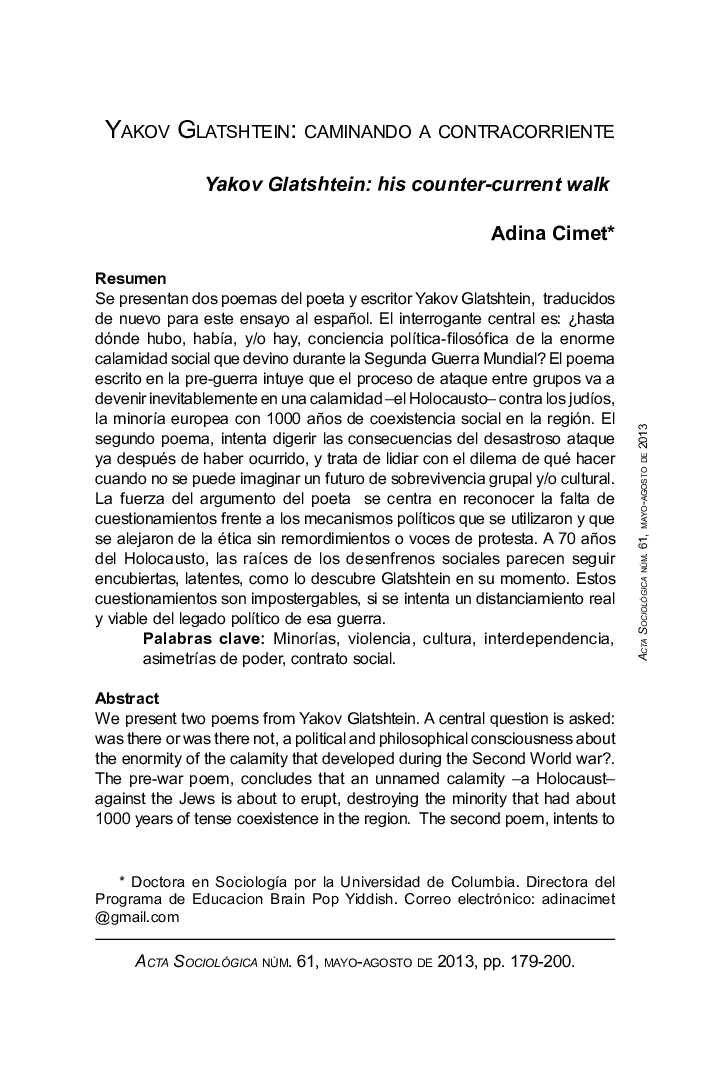| کد مقاله | کد نشریه | سال انتشار | مقاله انگلیسی | نسخه تمام متن |
|---|---|---|---|---|
| 1126416 | 1488591 | 2013 | 22 صفحه PDF | دانلود رایگان |

ResumenSe presentan dos poemas del poeta y escritor Yakov Glatshtein, traducidos de nuevo para este ensayo al español. El interrogante central es: ¿hasta dónde hubo, había, y/o hay, conciencia política-filosófica de la enorme calamidad social que devino durante la Segunda Guerra Mundial? El poema escrito en la pre-guerra intuye que el proceso de ataque entre grupos va a devenir inevitablemente en una calamidad –el Holocausto– contra los judíos, la minoría europea con 1000 años de coexistencia social en la región. El segundo poema, intenta digerir las consecuencias del desastroso ataque ya después de haber ocurrido, y trata de lidiar con el dilema de qué hacer cuando no se puede imaginar un futuro de sobrevivencia grupal y/o cultural. La fuerza del argumento del poeta se centra en reconocer la falta de cuestionamientos frente a los mecanismos políticos que se utilizaron y que se alejaron de la ética sin remordimientos o voces de protesta. A 70 años del Holocausto, las raíces de los desenfrenos sociales parecen seguir encubiertas, latentes, como lo descubre Glatshtein en su momento. Estos cuestionamientos son impostergables, si se intenta un distanciamiento real y viable del legado político de esa guerra.
We present two poems from Yakov Glatshtein. A central question is asked: was there or was there not, a political and philosophical consciousness about the enormity of the calamity that developed during the Second World war?. The pre-war poem, concludes that an unnamed calamity –a Holocaust– against the Jews is about to erupt, destroying the minority that had about 1000 years of tense coexistence in the region. The second poem, intents to digest the disaster once it has happened, and deals with the fact that there is no future to be imagined for the group or its culture. The importance of the poets’ arguments stem from his early recognition of the missing intellectual barriers within the discourse of the time; these needed to question the lack of ethical grounding within the political arrangements, but they were nowhere to be found. Today, 70 years from the Holocaust, conflicting interrelations among groups continue to linger unexplored, hiding the insidious roots of the problem. The absence of reformulations for the linkage of the ethical and the political, remain a most urgent task to be upheld if we hope to be able to distance ourselves of that political legacy of the war.
Journal: Acta Sociológica - Volume 61, May–August 2013, Pages 179–200